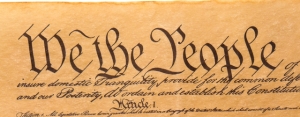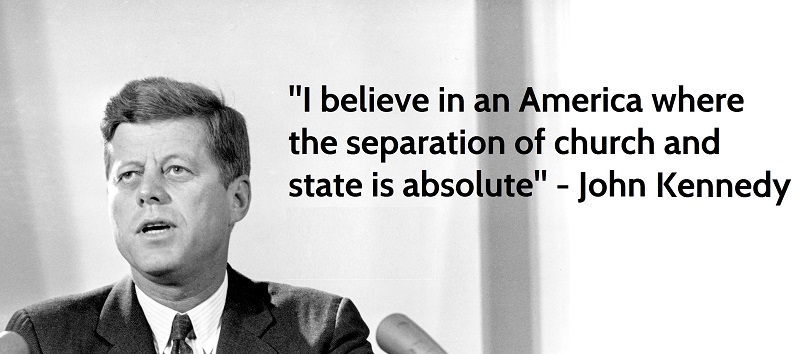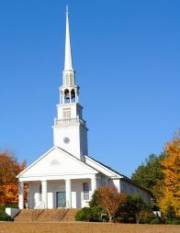 The first freedom protected by the Bill of Rights is the right of every American to a secular government that does not subscribe to religious beliefs or prohibit citizen engagement in private religious practices. Thomas Jefferson, in a famous letter to the Danbury Baptist association in 1802, expressed his ÔÇ£sovereign reverence
The first freedom protected by the Bill of Rights is the right of every American to a secular government that does not subscribe to religious beliefs or prohibit citizen engagement in private religious practices. Thomas Jefferson, in a famous letter to the Danbury Baptist association in 1802, expressed his ÔÇ£sovereign reverence
The desire of AmericaÔÇÖs founders to establish a secular government leaving religion in a protected, private sphere was rooted in their experiences with the officially ÔÇ£establishedÔÇØ Church of England during the colonial period (as well as with other established churches throughout Europe) and the religious violence of the wars triggered by the Reformation and its aftermath.
Many of the earliest settlers in North America were religious nonconformists who immigrated to the New World to escape a society where the head of state was also the head of the national church, and where refusal to belong and conform to that churchÔÇÖs teachings was not only heresy, but treason. Having escaped into the relative obscurity of a distant wilderness, many of these settlers proceeded to establish their own theocracies with their particular preferred brand of religion as the established orthodoxy. Roger Williams, for example, was banished from Puritan-governed Massachusetts in the 1630s due to his religious disputes with government officials.
He then founded the colony of Rhode Island, which guaranteed freedom of conscience by separating church and state, thus becoming one of the first true beacons of religious liberty in the colonies.
In the period leading up to the Revolutionary War, more Americans began to embrace WilliamsÔÇÖ legacy and resisted state religion. VirginiaÔÇÖs Statute for Religious Freedom, drafted by Thomas Jefferson and passed in 1786, provided that ÔÇ£no man shall be compelled to frequent or support any religious worship, place, or ministry.ÔÇØ
VirginiaÔÇÖs Statute also proclaimed that ÔÇ£our civil rights have no dependence on our opinionsÔÇØ regarding religious questions, and that the government has no right to ÔÇ£intrude . . . into th field of opinionÔÇØ except when such ÔÇ£principles break out into overt acts against peace and good order.ÔÇØ
Political support for the passage of the Virginia bill had been marshaled by James MadisonÔÇÖs famous Memorial and Remonstrance Against Religious Assessments, a tract written to oppose a bill that would have re-imposed the former colonial tax funding the teaching of Christianity. Madison wrote, ÔÇ£it is proper to take alarm at the first experiment on our liberties,ÔÇØ calling this vigilance, ÔÇ£the first duty of Citizens, and one of the noblest characteristics of the late Revolution.ÔÇØ He then called upon citizens to defend the separation of church and state, asking, ÔÇ£[w]ho does not see that the same authority which can establish Christianity, in exclusion of all other Religions, may establish with the same ease any particular sect of Christians, in exclusion of all other Sects? That the same authority which can force a citizen to contribute three pence only of his property for the support of any one establishment, may force him to conform to any other establishment in all cases whatsoever?ÔÇØ
This strong desire for secular governance is evidenced by the Constitution, a completely secular document, which includes no references to Christianity (or other religions) in particular, or to religious concepts, such as God, in general. The only two references to religion are exclusionary: the No Religious Test Clause, found in Article VI, which forbids the imposition of any religious test as a condition for holding a public office or governmental position, and the First Amendment, which separates church and state.
The Constitution, although generally setting up a government according to the will of a democratic majority, protects the civil rights and liberties of all from abuse by that majority. Any law that violates the Bill of Rights, which includes the Establishment Clause, is unconstitutional. Therefore, it is irrelevant whether any particular governmental measure promoting religion is popular; if it violates the separation of church and state, the court must strike it down.


